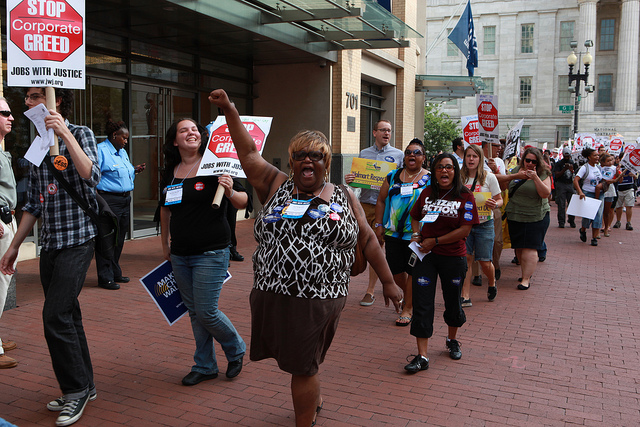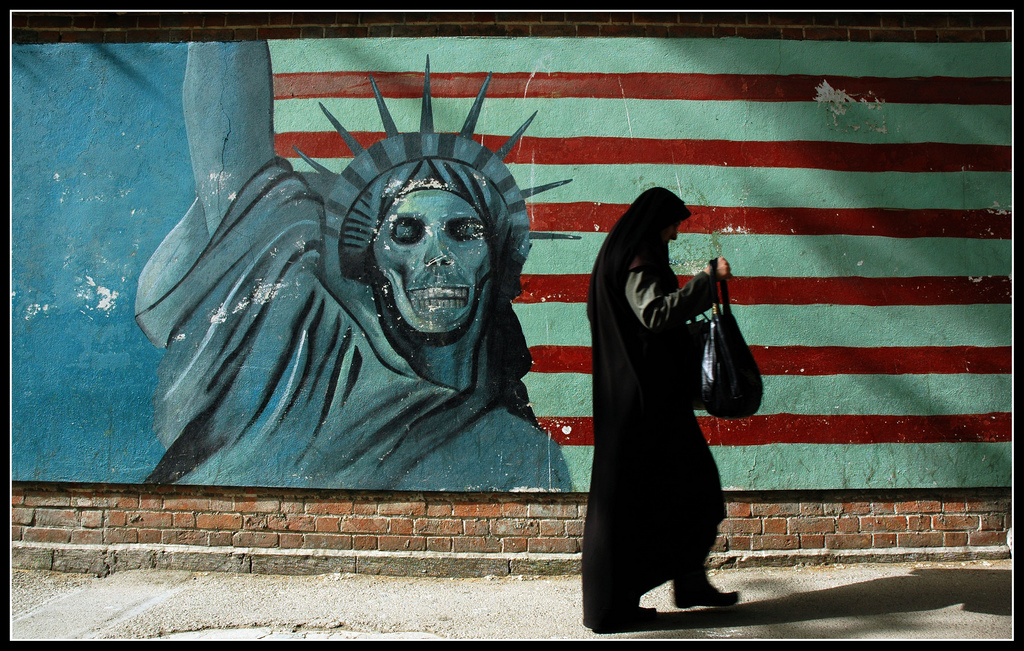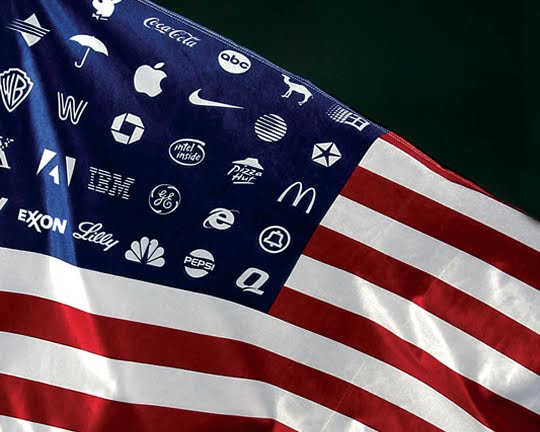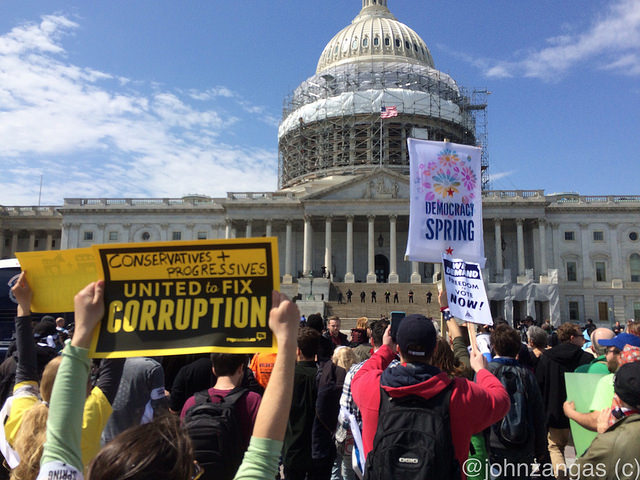
by Sam Jewler
This article was originally published on DC Mic Check.
Sam Jewler argues that DC workers need a living wage and the Large Retailer Accountability Act (LRAA) is the best and most available option for working toward that goal. DC City Council’s passing of the LRAA in August was a hard-won victory for workers’ advocates. Mostly aimed at Walmart, which wants to establish six stores in the District, it requires “big box” retailers with corporate sales of $1 billion or more to pay their employees no less than $12.50 an hour in combined wages and benefits. On September 12, Mayor Vincent Gray vetoed the legislation. Nine Council members are needed to override the veto, one more vote than was needed to pass it initially. LRAA proponents are targeting Tommy Wells because of his progressive record.
The battle cry has sounded for higher wages in DC, and Mayor Gray’s veto of the LRAA cannot stop it.
Any political or socio-economic vision must start with values. Not politically convenient or partisan positions, but non-negotiable values:
- That those who labor and produce must not be made to live off crumbs.
- That a city aspiring to become a state cannot submit its dignity and well-being to a non-state actor and expect to be taken seriously.
- That underserved communities need both retail and good jobs with equal amounts of urgency.
- That if we have any interest in having a vibrant small business economy or an aesthetically interesting city, gargantuan, homogenous Walmart warehouses don’t factor into the equation.
For DC City Council to stick to these values, it must override Mayor Gray’s veto of the LRAA.
One of the most common arguments against the LRAA has been that it doesn’t go far enough, and it discriminates against Walmart. Whether or not this argument is being made sincerely, it ignores the fact that DC workers need higher wages, and I just can’t see why it’s a reason to oppose the bill entirely.
First, on the economics: Walmart can easily afford to pay all its employees $12.50 an hour–just $26,000 per year–and still turn a healthy profit. Walmart is the largest employer in the American economy. Former Labor Secretary Robert Reich said of companies like Walmart, “Anybody who says somehow these companies can’t afford it is not looking at their profit loss statements, is not looking at their extraordinary corporate profits overall, the share values which have risen dramatically since the great recession, relative to what is happened to wages.” Walmart’s low wages require public subsidies to keep its employees fed and in homes.
We should want hard-working people to make as much as possible without bankrupting their employers. The LRAA achieves this, whereas a city-wide $12.50 an hour minimum would be tough on many small businesses that would already be challenged by Walmart’s low prices.
Second, on the politics: A bill directed at a few retailers has powerful opponents, but a city-wide minimum wage hike would have many more. And the LRAA would take away any reason for large retailers to oppose a minimum wage hike for everyone else–it would actually level the playing field for them. So in fact the LRAA is a real stepping-stone toward raising the minimum wage in DC. It puts upward pressure on wages at a major employer in DC and potentially neutralizes opponents of future minimum wage hikes.
Another political consideration: Whoever is in Council member Tommy Wells’ ear to vote against overriding Gray’s veto of the LRAA is weakening his mayoral prospects. Wells’ brand is progressive politics. Whereas he was once “Council Martyr” for pursuing badly needed ethics reform, he seems dead set upon martyring himself for Walmart and a few key Ward 6 constituents–not a good recipe for a mayoral platform. By setting himself against LRAA, he dilutes his progressive brand and passes up an opportunity to strike a populist pose against Muriel Bowser and Vince Gray, his two most formidable opponents. With Jack Evans the only mayoral candidate to vote for the LRAA, Wells is creating the real possibility of splitting both the white vote and the progressive vote. I don’t support the white vote for the sake of itself, but it’s certainly part of the political calculus.
With his veto, Mayor Gray is serving the interests of the super-wealthy rather than the people. We haven’t seen these levels of income inequality since 1927, and 85% of Americans support a minimum wage increase. Racist and sexist economic inequality is the defining issue of our time. The median income for black families is lower compared to whites than it was at the time of the March on Washington in 1963. The widespread lack of benefits like maternity leave contributes to the ongoing gender pay gap, with women making 77 cents on the man’s dollar. The Walmart heirs own more than the poorest 40% of Americans combined. Today, Mayor Vince Gray and Council members Tommy Wells, Muriel Bowser, Yvette Alexander, David Catania and Mary Cheh appear as Walmart’s fearful servants.
Mayor Gray and mayoral candidate Bowser know the arguments for a city-wide big box wage agreement and have spoken against them, apparently at a time when they found it more politically expedient. But dishonest politicians and their faux woeful cries of discrimination against the largest retailer in the world should not stop the people from getting what is theirs and what they need to survive.





